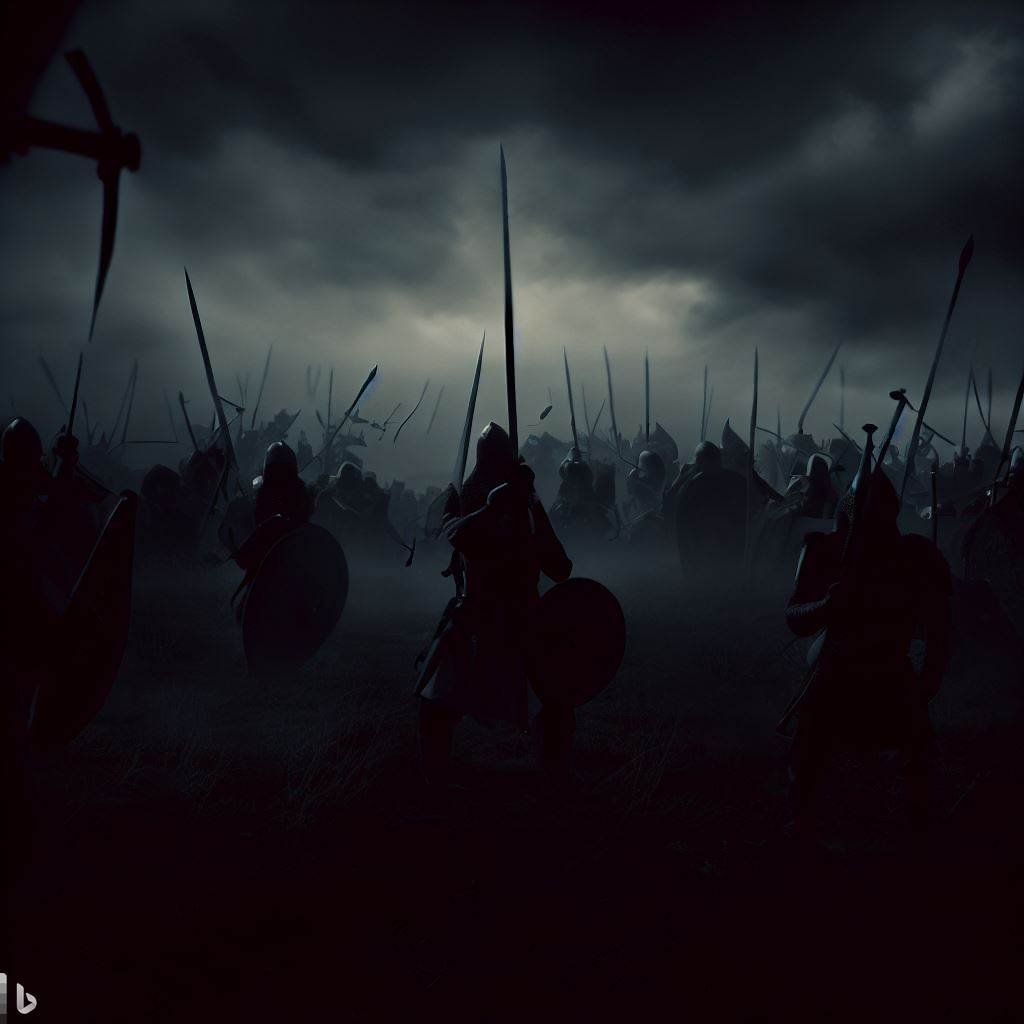
THE BATTLE OF CRÉCY
The English perspective: A Longbowman's Tale
The Battle of Crécy: A Longbowman's Tale
The sun blazed overhead, its rays reflecting off the polished armor and glinting weapons, as we, the English longbowmen, took our positions on the ridge between Crécy and Wadicourt. The air was thick with tension, and the scent of impending battle was palpable. My longbow, stained from previous battles, felt like an extension of my arm. Tightening my grip, I felt the weight of responsibility on my shoulders and the butterflies building in my chest. We were outnumbered, but we had the advantage of terrain, strategy, and the fierce determination that only desperation can bring.
Lorcan of Ashwood - English Longbowman
Our path to this decisive moment had been marked by fire and blood. From our audacious landing on the Cotentin Peninsula to the brutal skirmishes in the city of Caen, we had tasted both victory and the bitter tang of steel. King Edward's orders to spare the locals had been drowned out by the cries of war and the thirst for spoils. The French, with their overwhelming numbers, were like a shadow, always lurking, always pursuing. The retreat of our Flemish allies had stung, but we were resolved: this would be our ground, our stand.
Surveying the scene, I saw warriors, each with stories etched into their scars. We, the longbowmen, were the backbone of this army. We were ideally placed atop a ridge with a full view of the battlefield, our arrows thirsty for French blood. Nearby, the Black Prince, a beacon of youthful ferocity, was surrounded by battle-hardened veterans, their armor dented from countless confrontations.
Dark clouds gathered ominously, and as the first raindrops fell, I quickly shielded my bowstring. Across the field, I could see the Genoese crossbowmen, their strings sagging from the moisture, a clear disadvantage. It seemed even the heavens were on our side.
The battle was ignited by the Genoese marching forward, but they were lambs walking into a slaughter. With our superior vantage point, our arrows rained down like deadly hailstones, piercing armor and flesh. The wet ground beneath them turned red as they fell, their cries echoing across the field. Their retreat was a maelstrom of chaos, trampled underfoot by the impatient French knights eager for glory.
The French knights, in their gleaming armor, charged with a roar that shook the earth. But we met them with a storm of our own. Arrows whistled through the air, finding gaps in armor, piercing throats, and eyes. The ground became a quagmire of blood and mud, the cries of the wounded and dying creating a haunting symphony. The blind King John of Bohemia's valiant charge, tied to his knights, was a brief blaze of glory before they were cut down, their sacrifice a testament to the horrors and heroism of war.
As twilight approached, the once mighty French army, now battered and bloodied, began their retreat. King Philip VI, his armor splattered with the blood of friends and foes, was led away, a shadow of his former self.
That night, the battlefield was a macabre sight, illuminated by the flickering fires. We had not only defended our honor but had also bathed the fields of Crécy in the blood of our enemies. The Battle of Crécy was a brutal dance of death and valor, a testament to the ferocity of war and the indomitable spirit of the English longbowman.
The Battle of Crécy
As twilight approached, the once mighty French army, now battered and bloodied, began their retreat. King Philip VI, his armor splattered with the blood of friends and foes, was led away, a shadow of his former self.
That night, the battlefield was a macabre sight, illuminated by the flickering fires. We had not only defended our honor but had also bathed the fields of Crécy in the blood of our enemies. The Battle of Crécy was a brutal dance of death and valor, a testament to the ferocity of war and the indomitable spirit of the English longbowman.
Altnerative Reads
Source Texts


